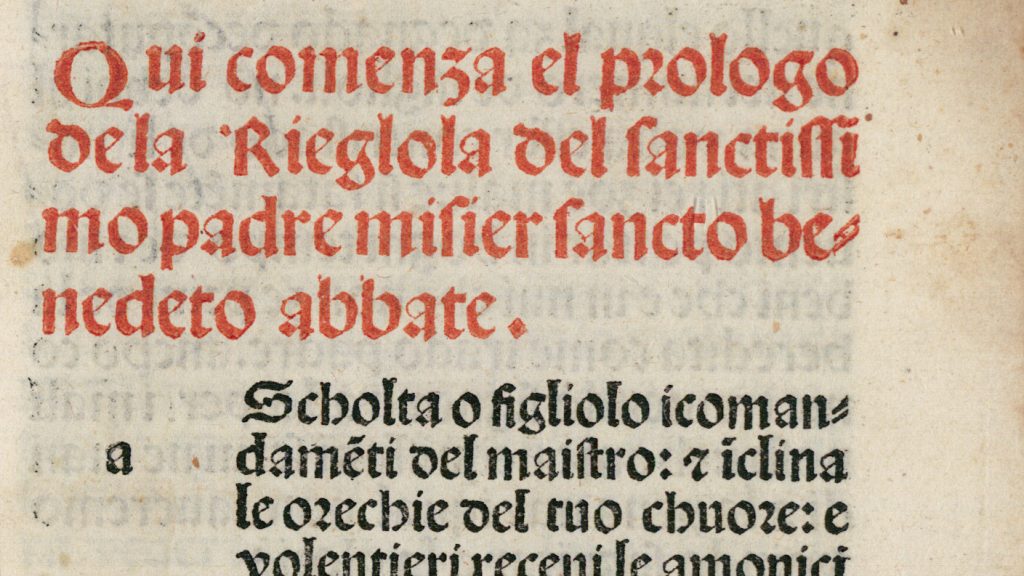Born today in the year 480 was St Benedict of Nursia, who founded several communities of monks in Italy, and wrote the Rule of St Benedict, an instruction manual for monks living with others in a monastery, or on their own as hermits. Benedict’s Rule (pictured above in an Italian book of 1495) has been followed by Benedictine monks ever since, and has enjoyed renewed interest in recent times.
‘As for coarse jests and idle words or words that move to laughter, these we condemn everywhere with a perpetual ban, and for such conversation we do not permit a disciple to open his mouth.’ Rule of St Benedict
This is St Chad’s Day, a 7th century Anglo-Saxon bishop, and the patron saint of disputed elections.
John Wesley died today in 1791, at the age of 87, still on his neverending preaching tour. After a lifetime of phenomenal energy and commitment to his mission, he left behind a Methodist membership that was already heading towards 1 in 20 of the British population. Having made up to £1,400 a year from his books, he only kept £28 a year for himself:
‘If I leave behind me ten pounds, you and all mankind bear witness to me that I lived and died a thief and a robber.’ John Wesley
Cardinal Eugenio Pacelli had arguably the biggest present in the world on his 63rd birthday today in 1939. He was elected pope and took the name Pius XII. Within a few months, Adolf Hitler invaded Poland, triggering the start of World War II, which came to define and controversialise his papacy.
Mani, the Persian prophet and founder of Manichaeism, died in prison today (or was executed, according to his followers) in the year 274 in what is now southwestern Iran. Mani’s teaching held that the universe is ruled by two principles, light and darkness, which are forever in conflict. The physical universe comes from the darkness, while the human soul comes from the light. St Augustine followed the Manichees when he was young, but after his conversion to orthodox Christianity he wrote extensively against Mani’s teaching.
Pope Leo XIII, ‘the Rosary Pope’, was born today in 1810. Between 1883 and 98 he issued a record-breaking 11 encyclicals on the rosary, urging Catholics to recite the rosary every day in the month of October.
Image: BEIC/Wikimedia
